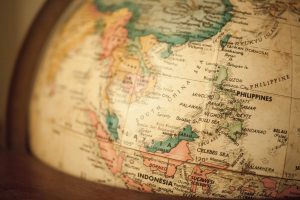Vietnam is ready to hold talks with the Philippines to settle their overlapping claims to the undersea continental shelf in the South China Sea, official Vietnamese media said Friday, in a diplomatic approach that contrasts with China’s increasingly assertive actions to fortify its claims in the contested waters.
The Philippine government said over the weekend that it has asked a United Nations body to formally recognize its right to the undersea continental seabed extending from its western coast outward to the South China Sea, a region that covers the hotly contested Spratly group of islands, islets and reefs. If granted, that would give Manila the exclusive right to exploit undersea resources there.
The undersea continental shelf claimed by the Philippines could overlap with those claimed by other coastal states such as Vietnam, which lies across the strategic seaway. Philippine officials expressed their readiness to hold talks to resolve such issues based on the 1982 United Nations Convention on the Law of the Sea, the international treaty that provides legal guidelines to define coastal states’ territorial waters.
Under the convention, a coastal state has the exclusive right to exploit resources in its continental shelf, a stretch of seabed that can extend up to 350 nautical miles (648 kilometers), including the right to authorize and regulate any kind of drilling.
Vietnam “stays ready to discuss with the Philippines to seek and achieve a solution that is mutually beneficial for both countries,” Vietnam Foreign Affairs Ministry spokesperson Pham Thu Hang said in Hanoi on Thursday, according to the official Vietnam News Agency.
She said coastal states have the right to have their continental shelf boundaries recognized under the U.N. convention, but need to respect the legal and legitimate rights and interests of other nations.
The Philippine government submitted information to the U.N. Commission on the Limits of the Continental Shelf on the extent of its undersea shelf in the South China Sea, off its western Palawan province, after more than a decade and a half of scientific research, the Department of Foreign Affairs in Manila said.
The Philippines’ permanent representative to the United Nations, Antonio Lagdameo, said the move “can reinvigorate efforts of states to demonstrate their readiness to pursue UNCLOS processes in the determination of maritime entitlements and promote a rules-based international order.”
The positions taken by the Philippines and Vietnam reject China’s claim to virtually the entire South China Sea based on historical grounds. However, Manila and Hanoi also have disputes with each other, limiting their ability to forge a united front against Beijing’s actions in the contested waters.
Aside from the three, Malaysia, Brunei, and Taiwan also have claims to the waters, a key global trade route.
Indonesia has also confronted Chinese coast guard and fishing fleets in the gas-rich Natuna waters on the fringes of the South China Sea. Indonesia in the past has opened fire and blown up Chinese fishing boats in its custody and arrested Chinese fishermen to assert its sovereign rights, sparking protests from Beijing.
Hostilities and tensions in the disputed waters have escalated alarmingly, particularly between China and the Philippines, at two disputed shoals since last year. Chinese coast guard ships and suspected militia vessels have used powerful water cannons and dangerous blocking maneuvers against Philippine coast guard ships and navy boats, injuring Filipino navy personnel, damaging supply boats, and straining diplomatic relations.
After a tense standoff between Philippine and Chinese ships near a shoal in 2012, the Philippines brought its disputes with China to international arbitration. The arbitration panel invalidated China’s claim to virtually the entire South China Sea in a 2016 ruling. Beijing refused to participate in the arbitration, rejected the decision and continues to defy it.

































